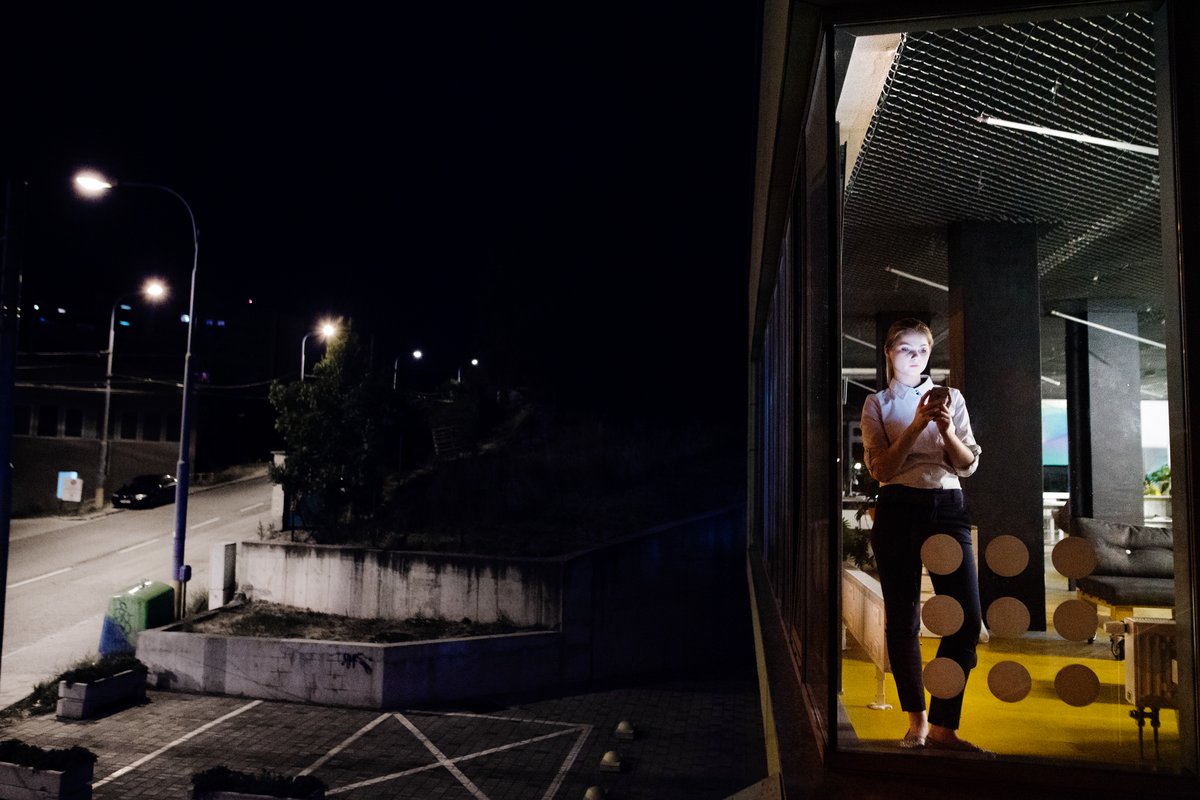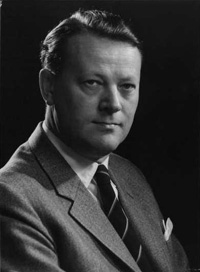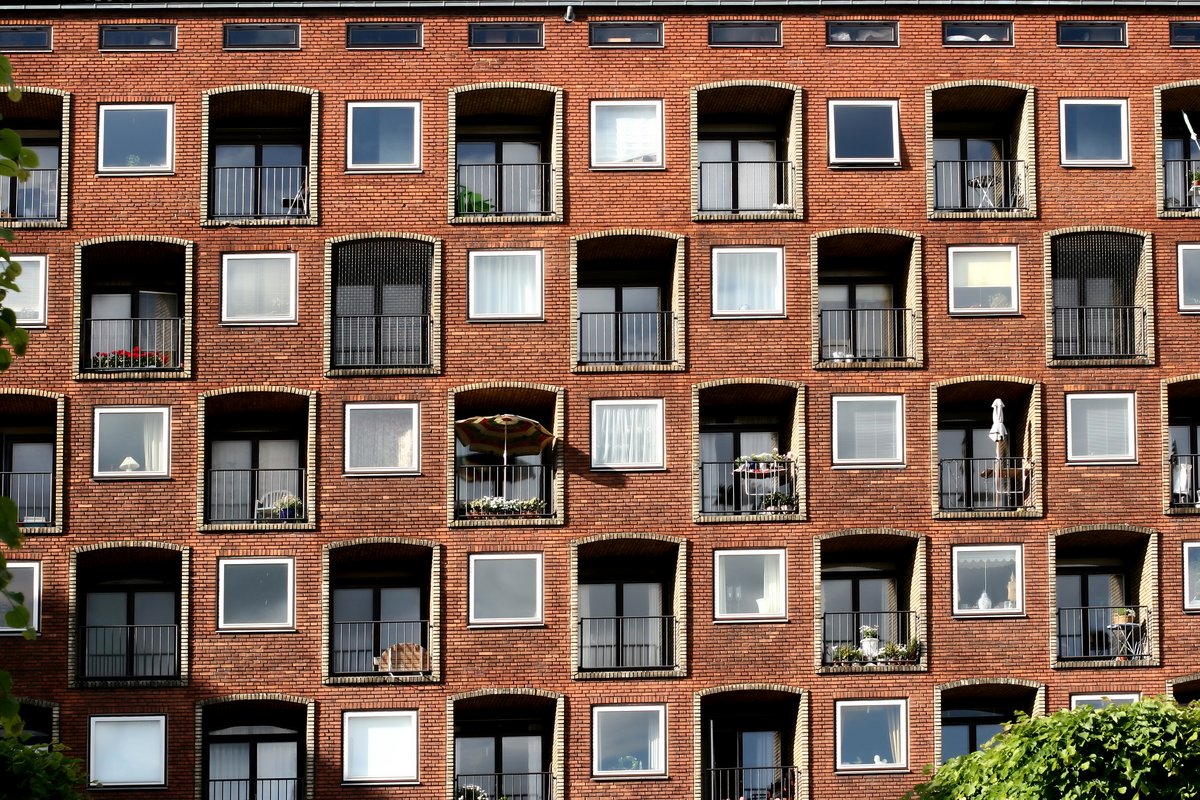Tryghed and Security in Scandinavia
Evocative term found in Norwegian, Swedish and Danish, with a focus on politics in Denmark.

Summary: 'Tryghed’ is usually translated into English as ‘security’ or ‘safety’. Security is a key political term worldwide, but the Scandinavian use of the term ‘tryghed’ in political debates has an extra layer: It immediately evokes a feeling of home and familiarity, trust and predictability. It is tinged with nostalgia for the ‘good old days’ of the welfare state and is therefore more than mere fearmongering.
What does tryghed mean?

With etymological roots in the Old Norse tryggr, the Scandinavian concept of tryghed (Danish spelling, trygghet in Swedish/Norwegian Bokmål) is tricky to translate. In English, it is usually translated into ‘security’ or ‘safety’ depending on the context, but tryghed is set firmly aside from these English counterparts by evoking feelings of warmth, familiarity, trust, everyday well-being, and predictability, and by having a close relation to images of ‘homeliness’ (a closer Danish translation of security or safety would instead be sikkerhed, which more directly refers to the absence of threats). In this way, tryghed is semantically related to an internationally well-known – and commercialized – Scandinavian concept, namely hygge, which broadly evokes the social experience of being at ease in the safe, familiar and warm environment of the home. According to cultural sociologist Jonathan Schwartz, it is precisely such implicit links to images of ‘the good family home’ that makes tryghed so hard to translate.
Why does tryghed matter?
The scholarly field of ‘security studies’ is an interdisciplinary strand of research that is interested in the various ways in which ‘security’ matters for both politics and people’s everyday lives. One of the most influential approaches in this field is the theory of securitization. This field seeks to explain how political talk about ‘security’ can be used to legitimize wide-ranging political interventions. A common example is how immigration is often securitized – i.e. framed politically as a security issue – to legitimize hard-line policies of management and control that might otherwise be hard to stomach for many voters.
However, there is so far very little research on how securitization may work differently across different language spheres, and tryghed is a good example of why this is an important research topic. For securitization to work, politicians (and other participants in the public political sphere) must express themselves in a way that resonates with and is understood by their audience. Calls for ‘security’ must be meaningful within a given context in order to be effective. With its links to homeliness and warmth rather than, say, direct danger and physical protection, tryghed has emotional and semantic ‘overtones’ that are quite far from the English ‘security’. This allows Scandinavian politicians to securitize policy areas in a rather different way than e.g. their Anglophone counterparts.
The politics of tryghed in Denmark – then and now
The concept of tryghed was tightly coupled to the expansion of the universal welfare state after 1945. In the 1945 Social Democratic election programme, Jens Otto Kragh (1914-1978), who later became Prime Minister, presented the post-war welfare state as an antithesis to wartime insecurity:
“The democracies must show that they cannot only win wars, but that they can also create social tryghed.”
In this way, the incipient welfare state presented itself as a central provider of tryghed through citizens’ universal access to social services and support.

More recently, tryghed has experienced a political renaissance, especially during Prime Minister Mette Frederiksen’s first government (2019-2022), culminating in the framing of the 2022 general election as a ‘tryghed election’ (tryghedsvalg). This, Frederiksen clarified, was to be understood in the broadest sense imaginable:
"The 2022 General Election will be a tryghed election. Tryghed for individuals, for families – your finances and everyday life – and tryghed for Denmark, Europe, and the world.”
What is different to previous social democratic periods in office – for example Jens Otto Kragh’s talk of social tryghed – is the sheer range of meanings and associations that tryghed has taken on in more recent social democratic discourse. We can see this even in Frederiksen’s first parliamentary opening speech in October 2020. The Prime Minister’s annual opening speeches are occasions for presenting the government’s ambitions and goals for the coming parliamentary year, and this particular year, tryghed was the key topic and buzzword. Referring to disadvantaged housing estates with large immigrant populations, Mette Frederiksen noted that “too many places have become characterized by utryghed" (that is, ‘un’-tryghed, i.e. the negation of tryghed, but also widely used for ‘fear of crime’). In line with a long-standing political focus on so-called marginalized urban neighbourhoods in Denmark, she explicitly linked the comparatively high crime rates of young immigrant males to questions of tryghed: "Young men who take the freedom of others, steal the future of children, break down prison wardens and leave a long trail of utryghed […]: Girls who are being called demeaning things because they are Danish. Or girls who are being exposed to ‘social control’ because they have become too Danish. A hot dog stand in Brønshøj [a Copenhagen suburb] that is being attacked with firecrackers because it is selling pork."
Mette Frederiksen contrasted such incidents to how the now disadvantaged housing estates were originally built for ‘regular people’ (i.e. the growing—and ethnically Danish—middle class of the 1960s and 1970s) who moved to the suburbs ‘in search of fresh air and tryghed.’ Incidentally, the areas in question were originally constructed as social democratic prestige projects – a modernist architectural adventure aimed at building ideal homes for ‘the new’ middle classes of the 1960s and 1970s – but have now allegedly degenerated into hubs of utryghed.
By evoking this history, she effectively established a link between the tryghed social policy ideals of the post-war period and its contemporary application to the politics of law and order. She then proceeded to effectively establish the existential depths of tryghed for her party’s political project at the time: "In this way, we can talk about an 'us' against 'them.' Not white people against brown people, not young people against older people, not Copenhagen against the rest of the country, or other kinds of false dichotomies. But those of us who want tryghed, decency, democracy, equality, freedom—against those who want the opposite."
With this diagnosis of the ostensible threats to tryghed posed by (young male) inhabitants of social housing estates as a springboard, the Prime Minister proceeded into a programmatic part of the speech in which she presented the government’s policy plans to ostensibly restore tryghed in Denmark – the so-called ‘tryghed package.’ This included, inter alia, a proposal to enable the police to establish no-go zones in public areas where tryghed is deemed to be under pressure, for example due to the presence of what she referred to as "groups of young men". During her time in power she has gone on to implement many of the measures she set out in this speech, which are further detailed in a short policy document from 2020 called ‘Security for All Danish People’ (Tryghed for Alle Danskere).
Tryghed as a specific kind of community building
So while tryghed largely began (and in part continues) its political life within the realm of ‘traditional’ welfare provision, its contemporary usage can also be located within a broader tendency towards increasingly punitive welfare states, not least towards socially marginalized citizens such as ethnic and religious minorities. This kind of ‘Janus-faced’ Nordic welfare state has been identified by sociologist Vanessa Barker in the Swedish case too, with special emphasis on immigration restrictions in reaction to the post-2015 increase in refugee numbers. Barker points specifically to the use of the Swedish equivalent ‘trygghet’ in legitimizing policy changes.
The politics of tryghed illustrate that security talk always has a community-building function through positive emotions and imaginaries of a community built on key values. Security is necessarily always security for someone – and often protecting them from something or someone else. In this sense, calls for security are always – in various degrees – implicated in setting boundaries, i.e. establishing whose security is concerned. Exclusionary policies are almost always part of this – as is evidenced by e.g. the ‘tryghed package’ mentioned above – but affirmation of common values and practices and the feelings that bind the community together is at least as important here. Through positive emotions – rather than just fear – tryghed discourses allow Scandinavian politicians to invoke a political community based on values and emotions of trust, care, warmth, and perhaps even nostalgia by connecting ‘the (welfare) state’ emotionally with ‘the home’. And this kind of affective ‘securitization’ would simply not make sense with reference to Anglophone concepts of ‘security’ or ‘safety.’
Further reading:
- Barry Buzan, Ole Weaver, and Jaap de Wilde, Security: A New Framework for Analysis (Boulder: Lynne Rienner Publishers, 1998).
- Jonathan Matthew Schwartz, In defense of homesickness: nine essays on identity and locality (Copenhagen: Akademisk Forlag, 1989).
- Laust Lund Elbek and Peter Starke, ‘Registers of Security: The Concept of 'Tryghed' in Danish Politics’, Security Dialogue X, X (2023), pp. XX-XX.
- Nynne-Cecilie Kelager Schmidt, Tryghed: Begrebet, der sejrede ad helvede til...godt! [Tryghed: The term that beat the hell out of all others!] (The Faculty of Humanities, The University of Southern Denmark: PhD thesis, 2017).
- Vanessa Barker, Nordic Nationalism and Penal Order: Walling the Welfare State (London: Routledge, 2018).
Links:
- VELUX Core Research Group “The Politics of Insecurity” (POINS) at the University of Southern Denmark (SDU).
- Article in the Danish newspaper Weekendavisen by Martin Krasnik entitled Tryghed, lighed og broderskab (Tryghed, equality and brotherhood).
- TrygFonden’s Surveys (TrygFonden is the philanthropic foundation of TryghedsGruppen, a member-based company and the largest shareholder in insurance company Tryg.)

